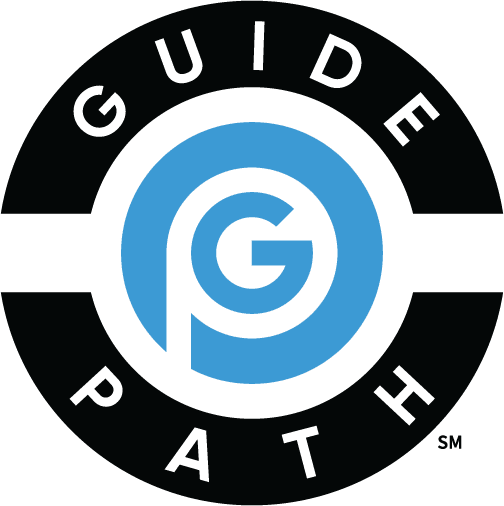Elder care is a term that covers a broad spectrum of healthcare, care communities and individuals. It is an incredibly diverse industry that comes with its own language. This can create hurdles when it comes to communication within elder care for those who may not be familiar or are still learning. At Guide Path, we advocate for compassionate communication and actively help others in achieving this through our certification programs and resources. However, we understand that the first step to compassionate communication is understanding the language. That’s why we have created a list of terms that will help you better understand elder care.
General Terminology
ADLs (Activities of Daily Living)
In the majority of care settings, you will hear about ADLs, which stands for Activities of Daily Living. ADLs are the different areas of a resident’s life that require assistance such as:
-
- Bathing
- Dressing
- Toileting
- Transferring
- Eating
- And additional support
Understanding ADLs is extremely important when it comes to navigating care and can even affect knowing what benefits a resident can qualify for in their care community.
IADLS (Instrumental Activities of Daily Living)
In addition to ADLs, there are IADLS, which stands for Instrumental Activities of Daily Living. These are activities that are separate from the basic necessities of living for a resident. They might include:
-
- Shopping
- Money Management
- Transportation
- Meal Preparation
- Cleaning
IADLs are certainly beneficial to a resident. However, these activities are not deemed essential to living; therefore, the distinction is made.
Caregiver
A caregiver is a much broader term than many people assume. A caregiver can be anyone who is providing care to the resident. This is true in a community setting, as well as an in-home care setting. This title is not reserved for anyone who has a specific certification; therefore, a loved one, third-party contractor, licensed professional, or anyone who is giving a helping hand can be considered a caregiver.
POA (Power of Attorney)
Depending on the health condition of a resident, a caregiver may also be granted Power of Attorney (POA) over the person they are caring for. This allows the caregiver to serve as an agent on behalf of the resident by making decisions for them that would otherwise require the consent of the resident themself.
Care Plan
A care plan is a detailed, personalized document that outlines an individual’s healthcare needs, the services required to meet those needs, and the goals for maintaining or improving the person’s health and well-being. Care plans are often used in long-term care and senior living settings to ensure coordinated, comprehensive care for residents.
Gain additional insights from Dr. BJ Miller and Rebecca Adelman, Esq. on this webinar.
Community Terminology
Respite Care
Respite care is temporary care provided to individuals who require assistance with daily living, often due to age, illness, or disability. It is designed to give family caregivers a break from their caregiving responsibilities, allowing them to rest, take a vacation, or tend to personal matters while ensuring their loved ones continue to receive the necessary care and support.
Active Adult
Active adult refers to communities, villas, campuses or living arrangements designed for aging adults, typically aged 55 and older, who are largely independent and in good health, but seek a lifestyle that offers low-maintenance living, social engagement, and recreational activities. These communities cater to those who do not require assistance with daily activities or medical care but want to enjoy an active, socially vibrant, and fulfilling lifestyle during their retirement years.
Independent Living
Similar to active adult communities, independent living refers to housing and community arrangements designed for older adults who generally are capable of managing their daily lives without the need for assistance or healthcare services. However, independent living communities may offer a variety of IADLs to assist their residents.
Assisted Living
Assisted living is a level of senior care to residents who require ADLs but do not require the intensive medical care provided in a nursing home. It bridges the gap between independent living and more comprehensive care, offering residents a supportive environment where they can maintain as much independence as possible while receiving assistance with basic tasks.
Memory Care
Memory care is a specialized type of long-term care tailored to meet the needs of individuals with memory-related conditions, such as Alzheimer’s disease and other forms of dementia. Memory care is often an additional wing or secured community of assisted living communities. However, there are communities that specialize specifically in care for residents who are experiencing cognitive decline.
Skilled Nursing
Skilled nursing refers to a high level of medical care provided by licensed health professionals. These facilities are unique in that they are typically paid for through medicare/medicaid, as opposed to private pay. Skilled nursing facilities (SNFs) are commonly known as nursing homes and offer both short-term and long-term care for individuals who need medical services, rehabilitation, or assistance with daily activities.
CNA
A Certified Nursing Assistant (CNA) is a healthcare professional who provides basic care and assistance to patients and residents in various long-term care settings. CNAs play a crucial role in the elder care industry, helping ensure that residents receive the necessary support for their daily needs and maintaining their comfort and dignity.
RN
Registered Nurses (RNs) play a crucial role in providing comprehensive care and support to older adults. RNs are highly trained professionals responsible for assessing residents’ health, coordinating care, and ensuring that residents receive the necessary medical attention and assistance in a senior living community.
Executive Director
An Executive Director (ED) or Administrator at a senior living community is responsible for the overall management and operation of the community. This leadership role involves overseeing all aspects of the community, including resident care, staff management, financial performance, and regulatory compliance. The Executive Director plays a critical role in shaping the culture and environment of the community while ensuring that it meets the needs of residents and their families.
Understanding senior living or elder care terminology is essential for effective communication within the industry and for those navigating the care options available for themselves or their loved ones. The diverse terms discussed in this blog highlight the range of services, roles, and care levels that exist within elder care, from basic daily living activities to specialized memory care and skilled nursing. By familiarizing yourself with this language, you empower yourself to make informed decisions and advocate for the needs of older adults.
At Guide Path, we are committed to promoting compassionate communication and providing the resources needed to enhance understanding in the elder care field. To learn more, we encourage communities to participate in our certification programs to further deepen its knowledge and improve the quality of care provided to seniors in your community.







